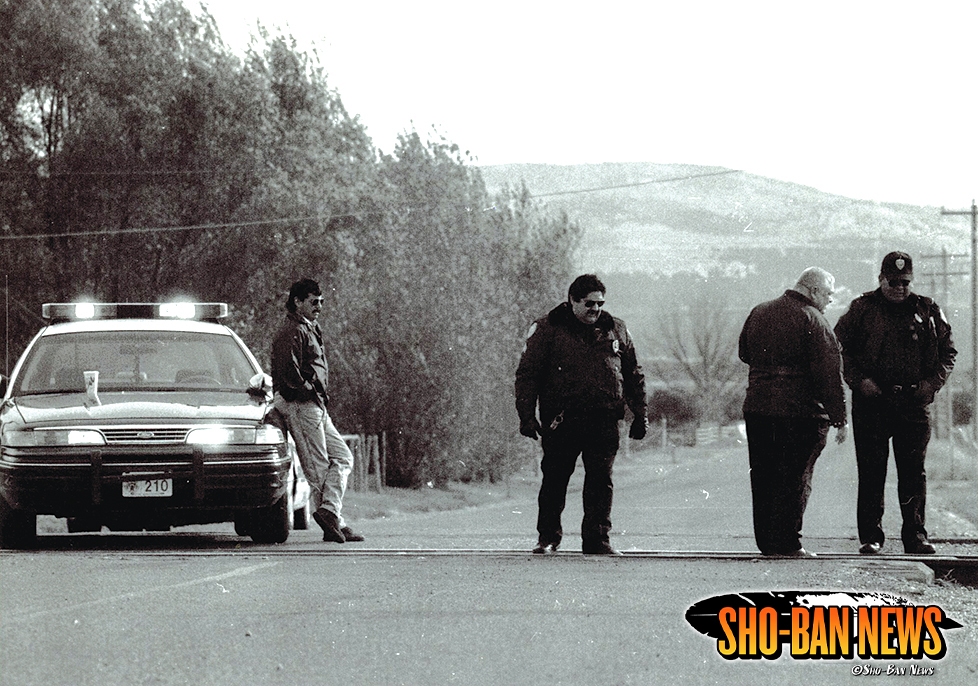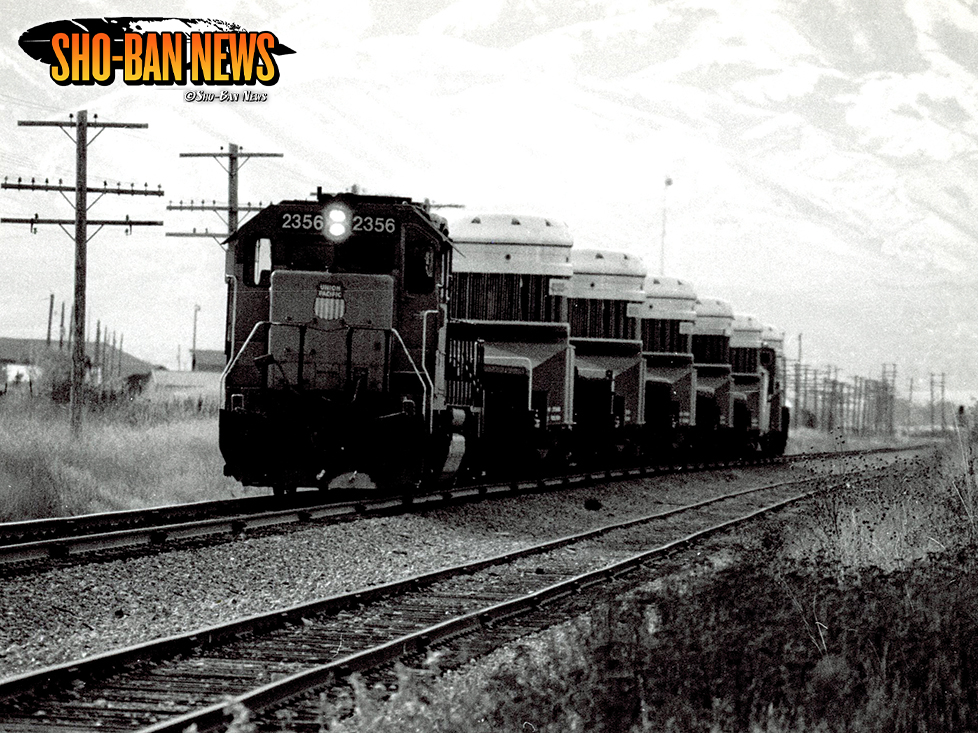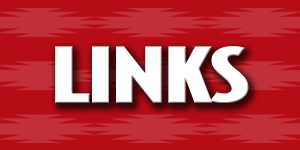LCPD’s nuclear waste transport presentation explains agreement between Sho-Ban Tribes & Dept. of Navy

Fort Hall Police at the railroad crossing where a train transporting nuclear waste was stopped in 1995 on the Fort Hall Indian Reservation. (Sho-Ban News file photo)
By LORI ANN EDMO
Sho-Ban News
FORT HALL — A presentation on the Shoshone-Bannock Tribes agreement with the Department of Navy to allow nuclear waste transport through the Fort Hall Indian Reservation was explained November 21 during the Language and Culture Preservation Department’s Native American Heritage Month series.
Jeanette Wolfley, tribal attorney, gave the history on the topic and how it came about.
The agreement evolved after the Fort Hall Business Council voted to stop the Union Pacific Railroad train carrying the spent naval nuclear fuel October 24, 1995. Fort Hall Police officer Leona Christy (now deceased) pulled her police car on the railroad tracks to stop it.
The train was stopped because the government never reached an agreement with the Tribes to transport waste across the reservation, however they did reach an agreement with the state of Idaho. The late Delbert Farmer was chairman at the time, and he told Department of Energy and Navy officials, “This is our homeland and we are mandated to protect it by the members of the Shoshone-Bannock Tribes.” The Tribes issued a press release that said the state of Idaho and then Governor Phil Batt did not speak for the Tribes. “The Shoshone-Bannock Tribes, as a government, has the responsibility and duty to make decisions affecting tribal lands.” But the federal government and the state chose to disregard the Tribes and attempted to cross the reservation. The press release said the DOE and Navy never communicated with the Tribes to obtain permission to cross the reservation.
Louise E. Dixey, LCPD manager, said she was on the FHBC at the time and said Fred Auck, also a council member, made the motion to stop the train. “We let them know ahead of time we were going to stop it.” It was stopped at Reservation Road.
Wolfley said initially in the early 90s, she and the late Diane Yupe began discussions with the Department of Energy at the Idaho National Engineering Laboratory (INEL) for them to begin sharing information with the Tribes on cultural resources monitoring, trying to structure and build a relationship with them because there wasn’t any. They did a working agreement with them in 1992.
Then the Department of Energy indicated they were going to be accepting shipments of nuclear waste. First commercial waste, which was coming from the nuclear power plants, which is considered private and commercial, but also then begin accepting spent fuel rods from naval submarines that they were decommissioning. There was quite a few decommissioning of nuclear power plants such as in Minnesota. The Prairie Island Sioux Tribe was in conflict with the Northern States Power Company there. Decommissioning was also occurring in Maine and New Hampshire and there was conflict regarding where it was going to be sent and quite a bit was being considered to be sent here in Idaho.
She said the Fort Hall Business Council at the time was concerned about the shipments because of the potential for accidents, the risks that could occur if it came along the railroad. The Tribes passed a resolution prohibiting the shipments to come through Fort Hall and it was sent to the Public Service Company of Colorado. Despite the Public Service Company receiving the letter, they still attempted to ship the waste. The Public Service Company then sued the Tribe seeking an injunction. The federal judge initially ruled in favor of the Tribes citing the Tribes sovereign immunity and could pass their own laws to stop the shipment. The Public Service Company appealed to the Ninth Circuit, and it found that a federal law that had been passed by Congress earlier, which was the Hazardous Waste Materials Transportation Act, preempted the tribe’s sovereign immunity and permitted the shipments, commercial shipments, to come through Fort Hall. Wolfley, Yupe and Hal Hayball worked on comments regarding it and submitted to the DOE in 1994. They argued that the Department of Energy’s draft environmental impact state was inadequate, and that it didn’t cover the whole corridor. It just considered what was happening at INEL. It didn’t consider all the potential for accidents and impacts it could have along the way with regard to not only cultural resources and wildlife, air, water — a number of potential impacts that could have if there were any problems along this corridor. The state of Idaho also had similar comments. The state sued the DOE seeking them to redo or reconsider a number of things in the draft environmental impact statement. The Tribes participated in the court hearing in federal court. The FHBC Chairman at the time Kesley Edmo presented testimony regarding the Tribes concerns and what could potentially happen.
Wolfley said given this, the hearing and the decision that was issued by the federal district court here in Idaho, the state of Idaho and the Department of Navy reached a settlement agreement over the nuclear shipments coming into Idaho. The tribe was not a party to that agreement though, even though they testified and were part of the court hearing, they weren’t a part of the hearing. On October 17, 1995, the state of Idaho and the Navy announced they reached an agreement to begin shipments into Idaho with the first shipment a week later on October 24 to the INEL site.
The Tribes stopped the shipment. Immediately the Navy contacted the FHBC and Wolfley wanting to meet. Officials from Washington D.C. flew into Pocatello to meet for two days at the airport with the Tribes. She explained a lot of the meeting had to do with educating the Department of Navy, Department of Defense and the Department of Energy about the Tribes, tribal sovereignty and why the Tribes had the authority to separate and was above the state of Idaho so there needed to be an agreement with the Tribes before any shipments could go forward. So, the council agreed to allow that one shipment to go across the reservation that had been sitting in Pocatello with a police escort. Then what happened is the Navy agreed to hold hearings at Fort Hall in the council chambers gathering input but also informing the tribal membership about what the Navy shipments were about, how many there was going to be – basically doing a survey of the tribal concerns in November 1995.

A train transporting nuclear casks is stopped in Fort Hall in 1995. (Sho-Ban News file photo)
Following that on November 8, they would establish a cultural resources program, provide for grant funding, they would work on enhancing the Tribes emergency response as well as any environmental restoration issues, community monitoring stations and a working agreement was entered into in 1995 as a preliminary agreement until another one could be reached. Because of the time even though the Tribes only had that one resolution, the Navy had asked there other kinds of laws passed by the Tribes to cut a deal regarding issue. They then entered into the agreement in 1998 that is the last agreement that Wolfley know about. It may have been amended since then. It is a separate agreement from the Department of Energy.
Wolfley said what’s important to remember is the Department of Navy said they would only have that waste here in Idaho until 2035. At the time in 1998, it seemed like a long time ago. The initial 1995 agreement provided over a million to the Tribes for one year to start initial funding.
Dixey recalled Blackhawk helicopters flying in — the generals jumped out to meet with the council. The waste shipments weighed several hundred tons so one of the concerns the council had was every single railroad crossing on the reservation was in poor condition. “They were supposed to do 21 railroad crossings – that was part of the agreement and they were not to send any more shipments until all the crossings were fixed that’s when they offered the money.” She along with Delbert Farmer and Wolfley went to the Pentagon to meet with the generals. “They couldn’t believe this little tribe stopped the train,” she said. “They had no other plan, no other route,” for the waste. She noted all of the crossings haven’t been fixed and bridges still need to be improved in Fort Hall and Blackfoot. They were also supposed to put placards on all the trains indicating it was highly radioactive waste.
The Navy Agreement with the Tribes expires in 2035. The existing agreement provides for:
Transport and security measures – naval spent fuel is transported by rail across the reservation under specific conditions with a limit on the number of shipments per year and overall tonnage through 2035. The FHPD provides escorts with the Navy ensuring strict safety and security measures during transit.
Compensation and training: The Navy provides financial compensation to the Tribes for emergency response upgrades, police support and safety enhancements for rail crossings. Regular training is offered to tribal emergency responders with addition funding for community programs and education.
Environmental and technical oversight: The Tribes have access to environmental reports and the opportunity to review and consult on projects related to naval spent fuel storage and transport.
Project office establishment: A trust fund is provided to establish a Tribal Project Office for ongoing communication and management matters related to the agreement.





